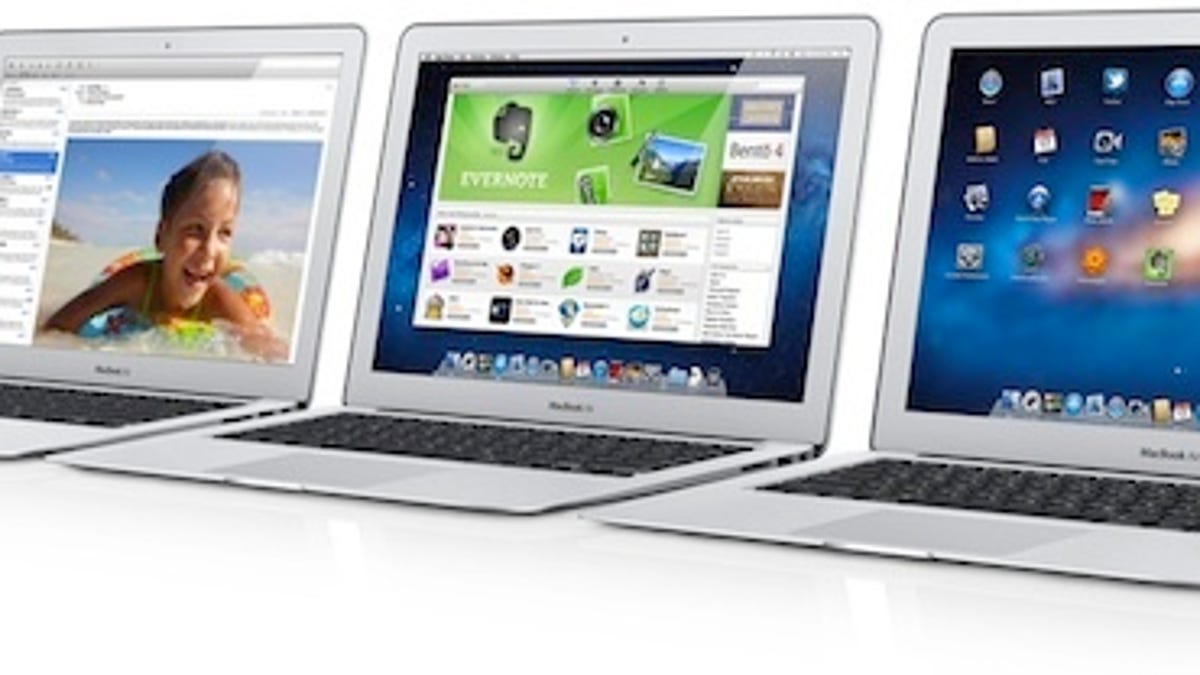Will Apple's silicon be good enough for a Mac?
The company's silicon gets better every year. But will it be fast enough for a Mac, and can it muscle out Intel?

Apple is starting to release some scary-good silicon. But can it muscle out Intel?
Last decade, the question was, will Apple go Intel? After years of speculation, that finally happened in 2006, when Apple dropped the PowerPC for its Mac line.
So are we now on a similar trajectory, as a Bloomberg story speculates, with Apple eventually evicting Intel from its Macs and using its own internally developed processors?
A quick look at the latest Apple silicon shows the company is on the right track. The A6X is a serious piece of silicon that makes the newest gen 4 iPad a powerful gaming tablet. Just check out these benchmarks at Anandtech.
If Apple maintains this pace, there's no reason it couldn't put, let's say, a future A7 or A8 in a MacBook-like device.
The problem is Apple is competing with the world's premier chipmaker -- that wasn't the case when it dumped IBM's PowerPC processor.
So, there's no assurance that when, for example, a future Apple chip appears it will offer the performance-per-watt (i.e., being fast while not too power-hungry) that would allow Apple to remain competitive with Intel-based mobile computers.
And here are some more considerations via chip analysts Nathan Brookwood of Insight 64 and Anand Shimpi of Anandtech, who offered their insights to CNET:
- 64-bit ARM: Before Apple can move the ARM chip architecture to the MacBook (or Mac) line, it needs to have 64-bit processors. Those chips will start to emerge in late 2013 or early 2014 from ARM, and Apple will likely follow suit with its own 64-bit designs. --Brookwood
- Apple's native chip tech: The A6 and A6X (inside the iPhone 5 and gen 4 iPad, respectively), use, for the first time, Apple's own processor designs rather than standard ARM designs. And, as a result, offer performance advantages over standard ARM chips. "They're doing some good stuff." --Brookwood
- Cost incentive: Intel's chips are very expensive, and Apple needs to maintain good margins to keep Wall Street happy. If it can provide a home-brewed solution that is good enough, it would make life a lot easier in the long run. --Anand
- Design incentive: Intel's current chip road map is lagging behind where Apple wants to be in ultra-mobile. If Intel doesn't rectify this, Apple will look inward. --Anand
And let's throw in a point brought up by a semiconductor industry source, who wished to remain anonymous. Recent management changes at Apple may be behind a renewed push toward chip independence -- that is, getting all of Apple's devices running on one operating system on top of one Apple chip architecture.
So, is there any hope for Intel? Anand believes if Intel can offer next-generation chips -- code-named "Haswell" and "Broadwell" -- that knock Apple's socks off, it has a chance.
"Intel's goal is to basically bring [its] Core [architecture] into tablets, which, if they can pull it off, is going to be very difficult to compete with," Anand said.
But "Apple needs a backup plan, and that's what we're seeing here," Anand continued. "If [Apple CEO] Tim Cook is rational, he will pick whichever option makes the most sense in terms of performance, experience, and cost."

